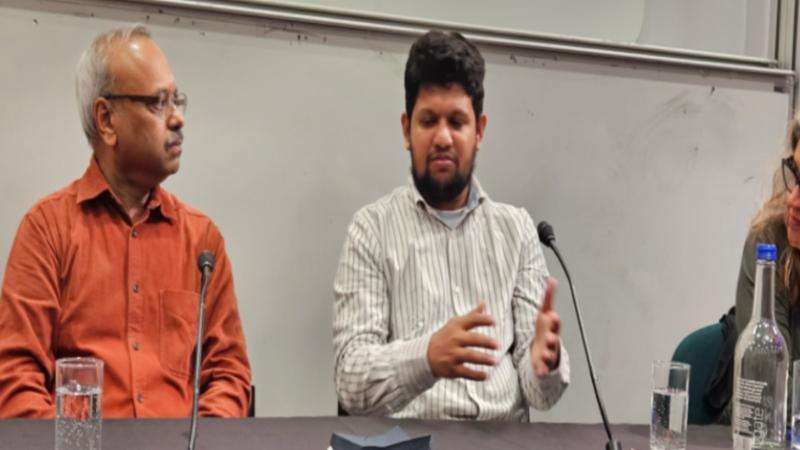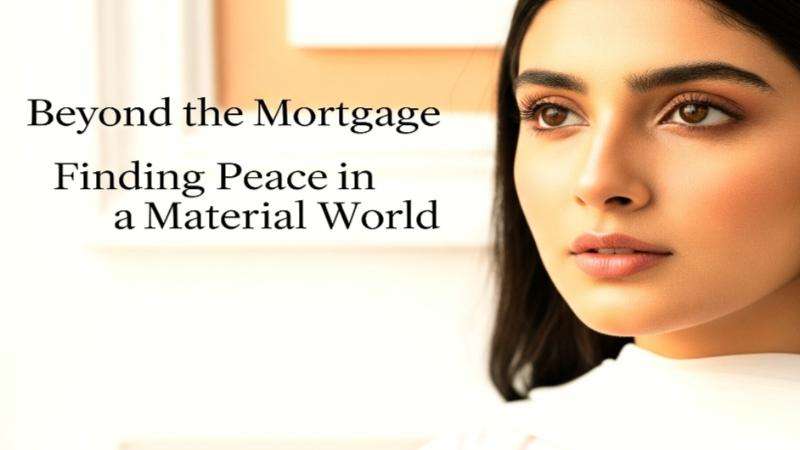In an increasingly frenetic world, the allure of a peaceful existence grows stronger. Many are turning to minimalism, a philosophy that advocates for living with less to create more space for what truly matters. But is a minimalist life genuinely the most peaceful? And how can individuals and families in the UK, USA, and Europe cultivate such tranquility, with or without the traditional markers of success like homeownership?
The Promise of Minimalism for Peace
Minimalism is not about deprivation, but intentional living. By decluttering physical possessions, individuals often find a corresponding mental clarity. This reduction in "stuff" can lead to less stress, fewer distractions, and more time and energy to pursue passions, strengthen relationships, and engage in self-care. It's about valuing experiences over acquisitions, fostering contentment with what one has, and reducing the constant desire for more. This can certainly pave the way for a more peaceful life, as it frees individuals from the anxieties of consumerism and the burden of maintaining excessive belongings.
Cultivating Peace Alone or with Family
Whether alone or with family, achieving a peaceful life in the UK, USA, and Europe involves several key elements:
Strengthening Social Connections: Even when living alone, actively nurturing relationships with friends, family, and community groups can combat isolation and provide essential emotional support. For families, dedicated quality time, open communication, and shared activities are crucial.
Mindful Routines: Designing a daily routine that incorporates activities that bring joy and well-being, such as exercise, reading, or hobbies, can significantly enhance peace. This is true for individuals and families, where consistent, positive routines can foster stability and reduce chaos.
Embracing Solitude and Togetherness: For those living alone, learning to appreciate their own company and using it for self-reflection and growth is vital. For families, finding a balance between individual space and shared experiences is key to harmonious living.
Creating a Calming Environment: Whether it's a small flat or a family home, making your living space reflect your personal style and be a sanctuary of comfort and calm is crucial. Decluttering, even without adopting full minimalism, can significantly contribute to this.
Money and Happiness: A Nuanced Relationship
The adage "money can't buy happiness" holds some truth, but the relationship is more complex. Research suggests that while a certain level of income can significantly improve well-being by providing for basic needs and reducing financial stress, the happiness boost tends to plateau or increase at a much slower rate beyond a comfortable threshold. In fact, some studies indicate that placing too much importance on money and material wealth can actually lead to lower well-being. The pursuit of ever-increasing amounts of money, especially at the expense of other life aspects, may not lead to greater peace or contentment.
The UK Housing Dilemma: Debt and Quality of Life
The question of buying a house in the UK is a significant one, often synonymous with security and success. However, for many, it entails a lifetime of substantial debt and loans. The average cost of living in the UK can be lower than in the US, but local purchasing power can also be lower. Renting offers flexibility and lower upfront costs, making it attractive for those who need mobility or aren't ready for the long-term commitment of homeownership. Renting doesn't build equity, and rent increases can be a concern, but it frees individuals from the responsibilities and financial burdens of property maintenance, stamp duty, and other buying-related fees.
Can a Quality Life Exist Without Homeownership or a Car?
Absolutely. A quality life is not solely defined by property ownership or car possession. In many major UK, USA, and European cities, excellent public transport systems reduce the need for a car. Furthermore, a focus on experiences, community engagement, personal growth, and strong relationships can provide immense fulfillment regardless of whether one owns their dwelling. Financial freedom from large debts can also open up opportunities for travel, education, or starting a business, contributing to a rich and varied life.
Cheaper Places to Buy a House in the UK
For those who do aspire to homeownership in the UK, it's worth looking beyond the highly priced urban centers. Generally, areas in the North East of England and parts of Scotland offer significantly more affordable housing. Examples of cheaper places to buy a house in the UK include- Hull,Sunderland,Blackpool,Middlesbrough,County Durham,Glasgow and surrounding areas (e.g., Port Glasgow, Cumnock)
Liverpool (certain postcodes),Stoke-on-Trent, Burnley
From Distant Shores to UK Home: An Immigrant's Quest for Belonging and Family Happiness
The journey of a first-generation immigrant is often one of immense dedication, sacrifice, and a profound desire to build a better life, not just for themselves but for their loved ones both in their new country and back home. This often translates into a relentless pursuit of stability, with buying a house abroad becoming a central, consuming ambition.
Jamal Ahmed who arrived in the UK from, Moulvibazar, Bangladesh a decade ago with a dream of establishing a solid foundation. For years, every spare penny, every extra hour worked, was meticulously saved towards a deposit. The process was fraught with challenges: navigating a new financial system, understanding complex legalities, and often facing the hurdle of lower homeownership rates among foreign-born individuals in the UK. Ahmed, like many first-generation immigrants, initially found himself in privately rented accommodation, often spending a significant portion of his income on rent.
His motivation wasn't just personal comfort; it was deeply intertwined with his cultural values and the desire to provide for his family, both the one he was building in the UK and the one he had left behind. The idea of owning a home in the UK symbolized not only security for his children but also a tangible achievement he could share with his parents back in [Fictional Country], a testament to his hard work and resilience.
"It was more than just bricks and mortar," Ahmed reflects. "It was about proving to myself, and to my family, that I could build something lasting here. Every penny I sent home, every call to my parents, was a reminder of why I was working so hard for this house."
The financial burden, however, is immense. First-generation immigrants often face additional barriers, including a lack of credit history, limited access to mainstream financial services, and sometimes, the complexities of sending remittances home. Despite these hurdles, the drive to secure a stable future for their family is a powerful motivator. For Ahmed, the dream extended to ensuring his children had a better start in life than he did, and that his parents back home felt secure, knowing their son had found stability.
Islam and the Minimalist Life
The principles of minimalism resonate deeply with Islamic teachings, which emphasize simplicity, moderation, and avoiding extravagance (Israf). Islam encourages a balanced approach to life, where material possessions are seen as transient and not the ultimate source of happiness or contentment.
Key Islamic values aligning with a minimalist lifestyle include:
Simplicity (Zuhd): This virtue encourages Muslims to lead a modest life, free from excessive attachment to worldly possessions. It's about distinguishing between needs and wants and prioritizing what truly matters.
Moderation (I'tidal): Islam champions balance in all aspects of life, including consumption. Muslims are encouraged to avoid both excessive indulgence and extreme asceticism.
Contentment (Qana'ah): Being satisfied with what one has and trusting in Allah's provisions is a fundamental concept. This reduces the desire for more and fosters inner peace.
Avoiding Waste (Israf): Islamic teachings strongly condemn wasteful practices, whether in food, water, or material possessions. This promotes responsible use of resources and aligns with sustainable living.
Focus on the Hereafter: Islam consistently reminds believers of the temporary nature of this world and encourages them to prioritize their spiritual well-being and actions that will benefit them in the afterlife, rather than accumulating endless worldly goods.
By embracing these principles, Muslims can naturally gravitate towards a minimalist lifestyle, finding peace not in material wealth but in their relationship with Allah, their community, and their inner self. Ahmed, for example, while working diligently to secure a home, also found solace in regular prayer and community involvement, understanding that true richness lies beyond financial gain. His efforts to provide for his family back home are also rooted in Islamic principles of charity and maintaining family ties.
Maintaining a quiet and peaceful life, whether as an individual or a family, in the bustling landscapes of the UK, USA, and Europe often involves a conscious shift in values. It's about recognizing that true peace comes from within, cultivated through intentional choices, strong connections, and a mindful approach to consumption, rather than solely from external markers of success.
_2.jpg)
_3.jpg)


_3.jpg)



.svg)
